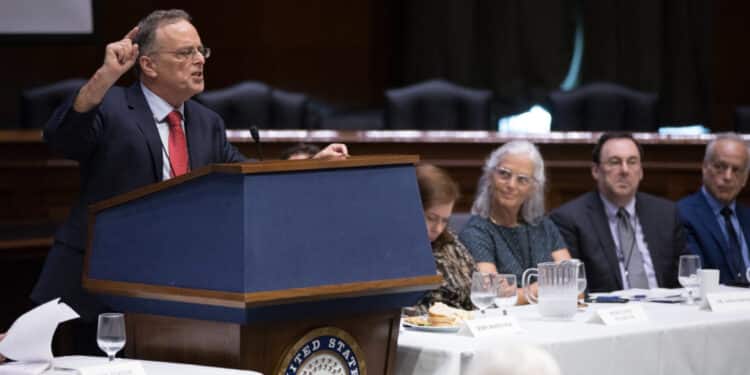July 30 is National Whistleblower Day. Every year since 2013, the U.S. Senate has unanimously recognized the holiday in order to honor individuals who have blown the whistle on misconduct, abuse, and violations of the law. Along with celebrating whistleblowers, the day aims to promote the idea that whistleblowing is a heroic action and to educate individuals about their whistleblower rights.
On May 18, leading whistleblower attorney Stephen M. Kohn of Kohn, Kohn & Colapinto appeared on an episode of Federal Drive with Tom Temin to discuss National Whistleblower Day. Temin and Kohn talk about the history of the holiday and its importance for federal employee whistleblowers in particular.
In the interview, Kohn explains that National Whistleblower Day “marks when the U.S. Continental Congress on July 30, 1778, passed America’s first whistleblower law…which called upon every single citizen, or inhabitant in the United States to disclose violations of law to appropriate authorities.” Kohn adds that the law was “before the U.S. Constitution before the First Amendment, and it reflects a fundamental principle of American democracy unanimously understood by the founding fathers during the revolution.”
Kohn uncovered the history of America’s first whistleblower law while doing research for his book The New Whistleblower’s Handbook. During the celebration for last year’s National Whistleblower Day, Kohn explained the full story of the law.
Later in the interview, Temin asks Kohn how things are for whistleblowers now. Kohn responds that “[i]n the federal government, for federal employees, things are still very bad. The Merit Systems Protection Board has been without a quorum for four years. And there’s a backlog of thousands of cases. So whistleblowers have been really out in the cold.”
“We really won’t accept whistleblowers or really have a system in which people feel comfortable raising concerns, until the workplace culture shifts,” Kohn adds. “And from our perspective, the key to that is for the leadership, not only to say whistleblowing is okay, but to point to examples, to point to what the Continental Congress did, and to educate their workforce and the American public that this is the American way, this is part of our credo, as free people.”
On April 21st, the National Whistleblower Center (NWC), of which Kohn is the Chairman of the Board of Directors, sent letters to dozens of executive offices and agencies urging them to implement educational programming centered around National Whistleblower Day. The letters state: “Widespread acknowledgement across the federal government of the importance of whistleblowers could change the culture of retaliation against whistleblowers that persists today.”
NWC also sent a letter to President Biden asking him to issue an Executive Order recognizing July 30th as National Whistleblower Appreciation Day and requiring all executive offices and agencies to educate employees about their legal rights and the importance of whistleblowers.




